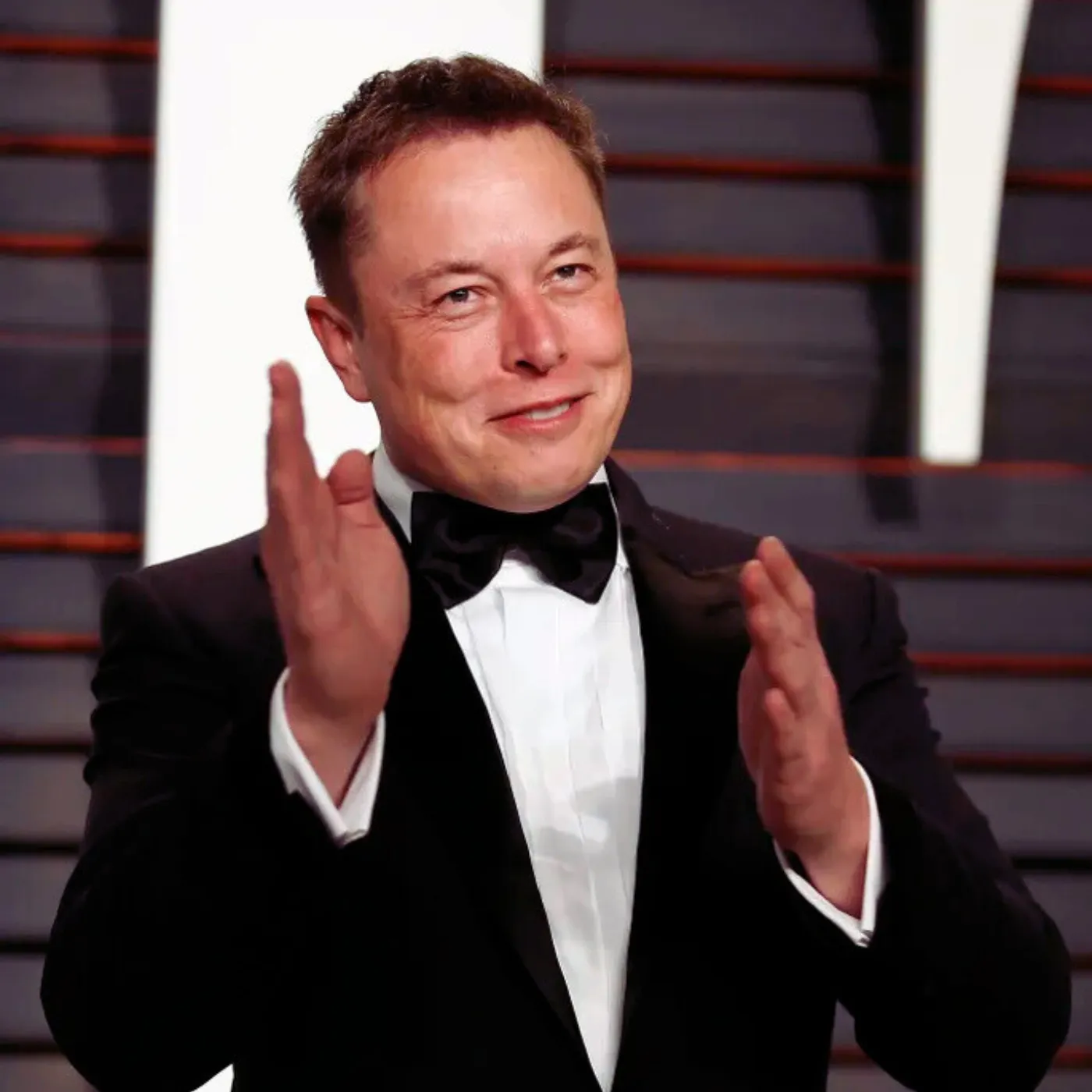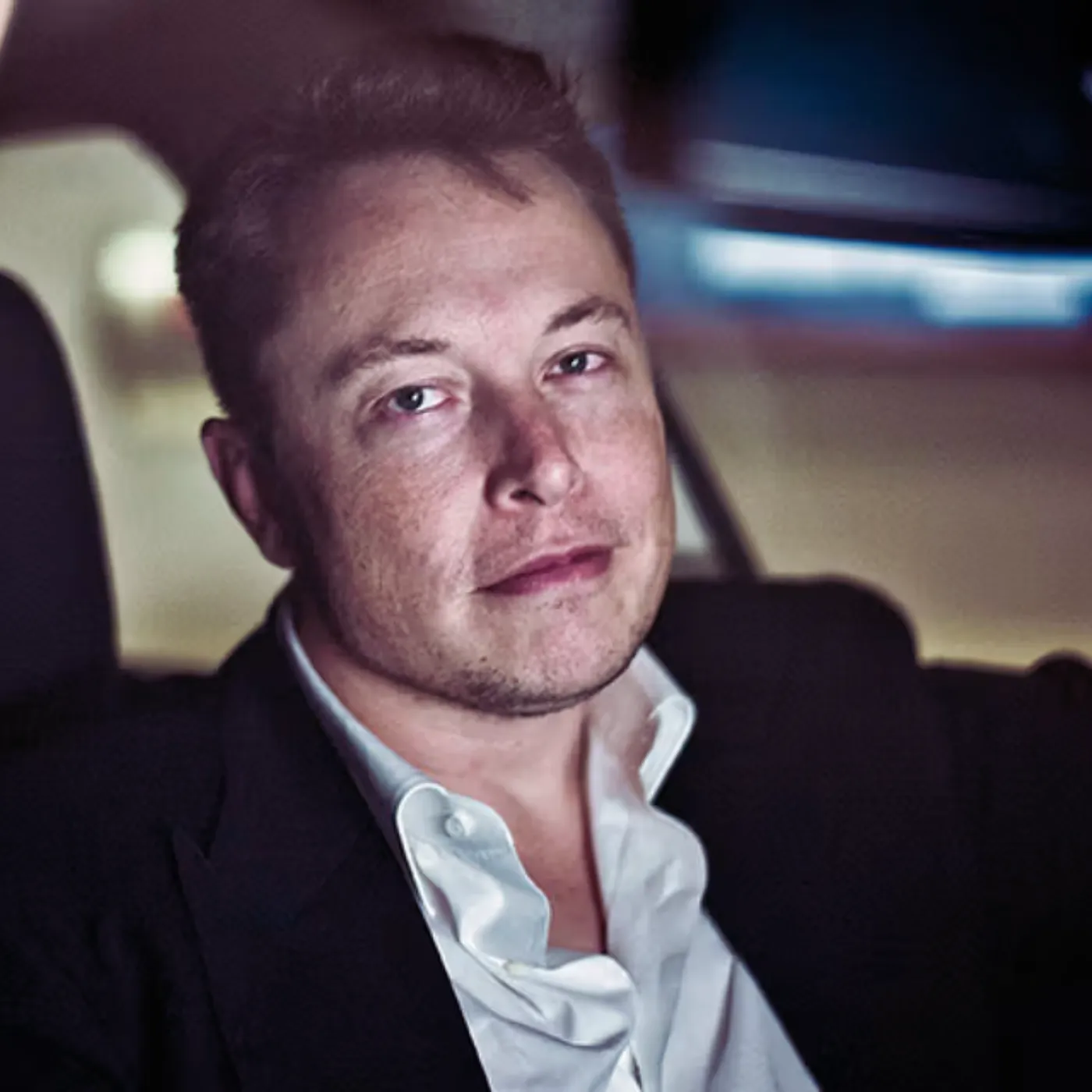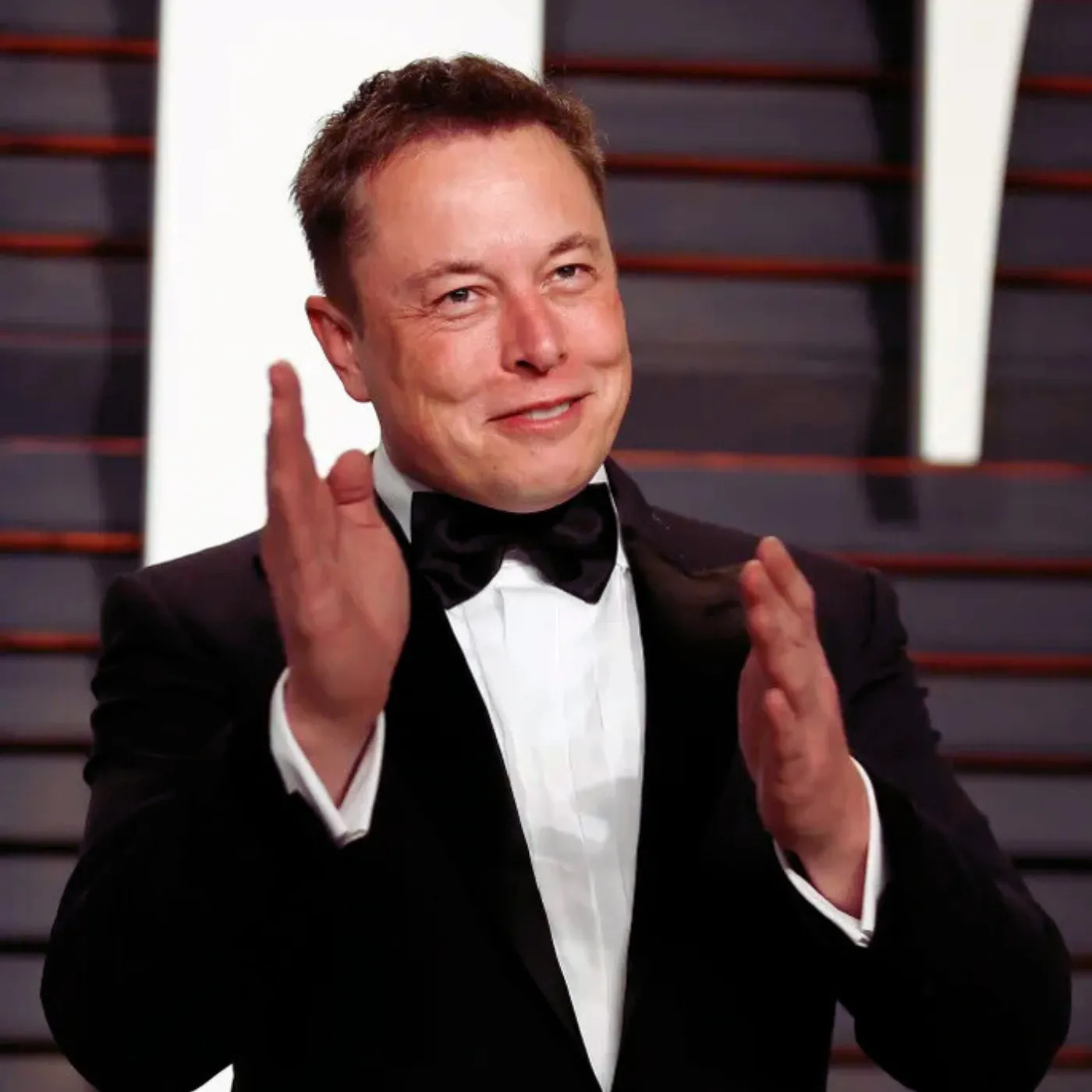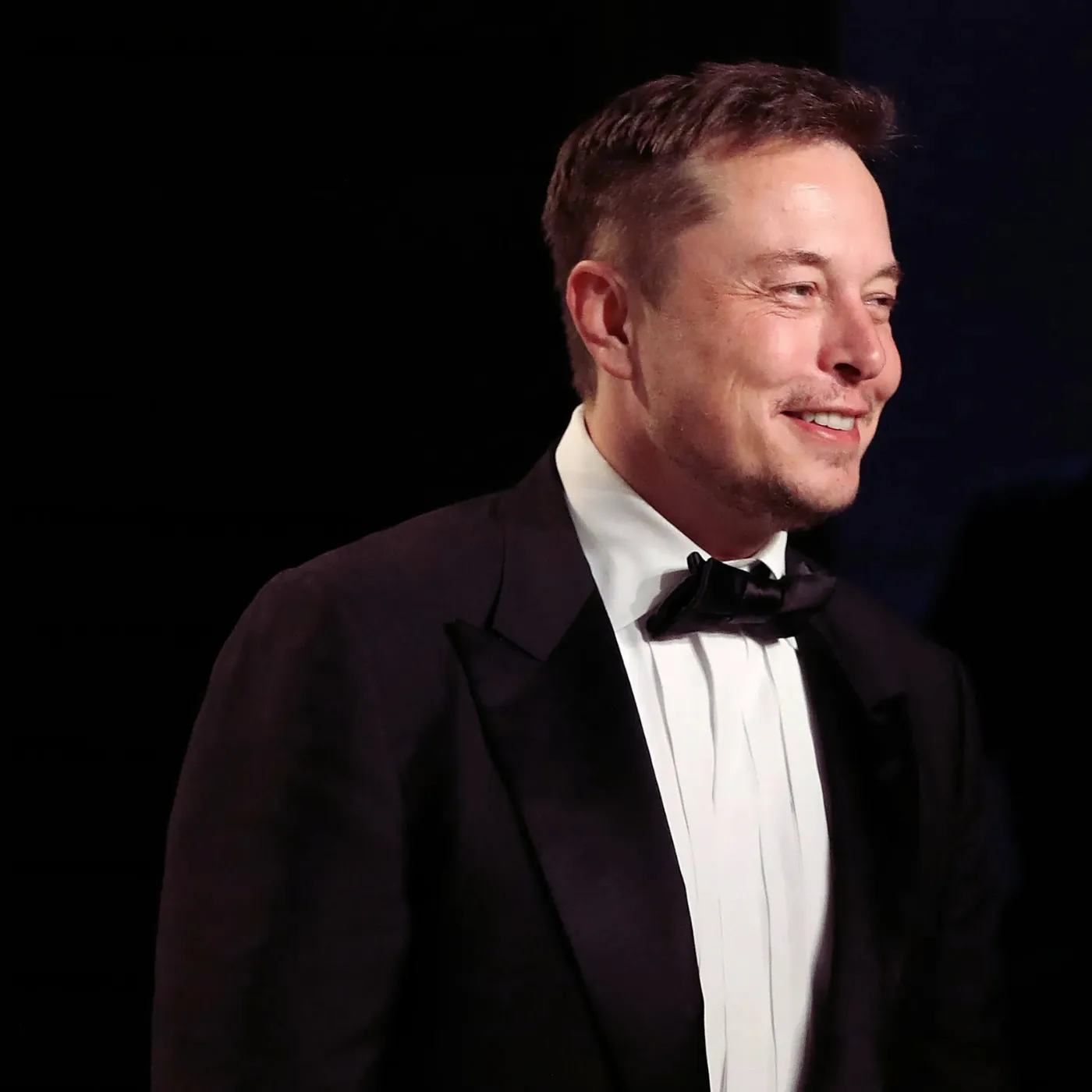

Elon Musk Called Out as the Real Life Inspiration for Squid Game’s VIP Villains
In a year already packed with jaw-dropping headlines, Elon Musk just found himself at the center of one of the internet’s most unexpectedly viral pop-culture debates.

The spark? An eyebrow-raising interview in which Hwang Dong-hyuk, the acclaimed creator of Netflix’s global megahit Squid Game, suggested the show’s famously grotesque VIP characters “kind of resemble” the world’s most recognizable billionaire.
“He’s everywhere these days,” Hwang remarked, dropping the kind of offhand comment that explodes online. Within hours, social media turned it into a full-blown spectacle, complete with memes, reaction videos, and fierce debates over whether the comparison was fair, savage, or simply inevitable.
But behind the social media circus lies a deeper question: How did Elon Musk, the ultimate modern capitalist antihero, become a mirror for Squid Game’s most sinister symbols of wealth, excess, and dehumanization?
Squid Game’s VIPs: Cartoons or Cautionary Tales?
For anyone who somehow missed 2021’s most-talked-about series, Squid Game is a razor-sharp thriller where desperate contestants risk their lives in deadly children’s games for a gigantic cash prize.
The real villains of the show aren’t the players themselves but the VIPs—grotesque, gold-mask-wearing billionaires who treat human suffering as sport. They are portrayed as detached, decadent, and horrifyingly bored with their own privilege.
Hwang Dong-hyuk has said many times that Squid Game is a critique of modern capitalism. But he took it further in the recent interview, stating that the VIPs were inspired by the kind of outsized billionaires who dominate headlines today. When asked about Elon Musk, Hwang didn’t mince words: “They kind of resemble him. He’s everywhere these days.”
Just like that, the world’s richest man was unofficially crowned the face of Squid Game’s darkest critique.
Elon Musk: The Ultimate Billionaire Archetype
If you’re trying to cast a real-life VIP for a Squid Game remake, Musk is hard to ignore.
He’s a tech billionaire with grandiose plans to colonize Mars, implant chips in human brains, and replace fossil-fuel cars with AI-powered robotaxis. He’s also a relentless showman whose tweets move markets, whose personal brand blends mad-genius hype with meme-lord chaos, and whose reputation polarizes fans and haters alike.
To Musk’s biggest fans, he’s the ultimate disruptor—a risk-taker saving humanity from stagnation. To critics, he’s a billionaire cosplay version of Tony Stark who breaks unions, trolls his rivals, and treats real people’s lives like chess pieces in his personal quest for greatness.
This is exactly the tension Squid Game’s creator is tapping into: the line where audacious ambition turns into inhuman detachment.
Social Media Reacts: Praise, Rage, and Meme Wars
It didn’t take long for Musk’s name to start trending alongside Squid Game.
Facebook, Twitter, TikTok, and Reddit lit up with split reactions.
Fans dismissed the comparison as lazy billionaire-bashing.
Critics said it was spot-on, posting side-by-side images of Musk and the show’s VIPs.
Memers went wild, photoshopping Musk into golden masks and decadent VIP robes.
Casual viewers just wanted to know if this meant Musk would cameo in season 2.
Facebook posts about the topic racked up thousands of likes and shares, especially those playing up the feud-like aspect:
“Elon Musk vs. Squid Game’s creator? Didn’t see that coming!”
“So the richest man on Earth gets compared to the worst humans on TV. Sounds about right.”
Is It Fair? A Polarizing Debate
Is comparing Musk to Squid Game’s sociopathic VIPs going too far?
That’s where things get messy—and why this story won’t die.
Musk is undeniably more visible than any billionaire on Earth. He’s on podcasts, earnings calls, Twitter Spaces, and launchpads. He’s selling flamethrowers, dropping one-liners about Dogecoin, and giving interviews about AI doomsday scenarios.

He is everywhere these days.
But is visibility the same as villainy?
Plenty of people see Musk’s extremes as necessary to drive change. Without him, they argue, Tesla wouldn’t have forced the car industry to electrify so fast. SpaceX wouldn’t have broken NASA’s launch monopoly. The Boring Company wouldn’t have made people even consider tunneling under cities to avoid traffic.
Yet these very disruptions come with a side of brashness, unpredictability, and controversy that can seem uncaring or, worse, self-indulgent.
Which is exactly what Squid Game’s VIPs embody: people so rich and bored they forget the stakes for everyone else.
The Myth of Musk: Genius, Madman, or Both?
If you’re looking for a neat moral to this viral mess, don’t bother.
Elon Musk’s brand thrives on contradictions.
He’s the Iron Man stand-in and the Twitter troll. The climate-change hero and the guy who sold a million-dollar gas-guzzling McLaren. The champion of free speech who bans parody accounts.
And that’s precisely why Hwang’s throwaway line resonates so much. It’s not that Musk is literally plotting gladiatorial death games (we hope). It’s that he embodies the modern billionaire who can’t be pinned down as purely good or evil—and therefore becomes the perfect cultural Rorschach test.
Hollywood Loves This Kind of Controversy
Don’t think the entertainment industry didn’t notice the headlines.
Insiders are already speculating that if Squid Game Season 2 leans even harder into VIP storylines, Netflix will have to address the Musk comparison—even if only as an Easter egg.
Imagine the memes if an actor appears in a gold mask making cryptic references to Mars colonies or robotaxis.
And Musk himself? He’s not known for staying quiet when his name trends. While he didn’t immediately respond to the VIP comparison, fans expect some snarky tweet or meme to drop eventually, fanning the flames even more.
Because let’s face it: Elon Musk doesn’t shy away from the spotlight.
The Business Side of the Buzz
Beyond the memes, this comparison has serious business implications.
Netflix knows controversy sells. Squid Game is already one of its most lucrative IPs. Leaning into real-world billionaire critique could make Season 2 even more buzzworthy.
Elon Musk is also no stranger to monetizing attention. Whether he’s in a feud with Mark Zuckerberg, challenging Vladimir Putin to a duel, or getting compared to Squid Game villains, he knows how to turn headlines into brand awareness.
Even negative press expands his reach.
What Happens Next?
No one thinks this story is over.
Fans are waiting for Musk’s response—will he troll the creator, ignore it, or post some cryptic tweet about playing “the game”?
Media outlets will keep milking the controversy. Opinion pieces, podcasts, and YouTube explainers will keep debating whether Musk is a villain, a visionary, or something weirder.
Netflix’s writers room will definitely notice the viral spike, potentially shaping Season 2 to court even more buzz.
And regular viewers? They’ll keep posting, arguing, and sharing memes that cement this bizarre cultural moment in internet history.

Final Thoughts: More Than Just a Throwaway Line
It would be easy to dismiss Hwang Dong-hyuk’s Musk comment as a cheap shot.
But there’s a reason it blew up.
Elon Musk isn’t just a businessman. He’s a character.
He’s the rare billionaire who actively plays into the drama, the mystery, and the internet-scale mythmaking. When the Squid Game creator says the VIPs “kind of resemble” Musk, he’s not just describing one man—he’s describing a new kind of public figure who is equal parts genius, spectacle, and cautionary tale.
It’s the perfect clickbait because it feels true, even if it’s not literally true.
In the end, it doesn’t matter if Musk is actually like a Squid Game villain behind closed doors. What matters is that the world was instantly willing to believe it.
And that’s the real reason the comparison stuck.
Because in 2024, Elon Musk is everywhere.
Even in your Netflix nightmares.


















